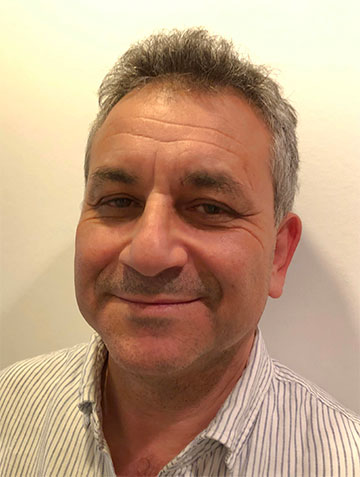
Hassen Ghalilae
In this installment of Senior Member Insights, OPN talks with Hassen Ghalila, a professor of physics at the Faculty of Sciences at the University of Tunis El Manar, Tunisia, since 2009. Before that, Ghalila was a professor at the Ecole d’Artchitecture et d’Urbanisme de Tunis (ENAUT), Tunisia, from 1997 to 2009. His B.S. and M.S. studies took place at the Faculty of Sciences of Orsay University of Paris-Saclay, France, and concluded with a Ph.D. in January 1994 in the physics of gases and plasmas section carried out at Polytechnique Paris-Saclay, France.
Ghalila’s research began with studies of microwave generation using electronic tubes. Since 1998, his research has focused on plasma analyses and plasma spectroscopy and, more recently, on biophysics and space weather. Ghalila is currently the vice-president of the Société Tunisienne d’Optique (STO).
What first interested you in pursuing science?
For me, this question is about a complete career in science and not only during my childhood or school and university.
Scientific research is the freedom to question everything without taboos. It is also a perpetual discovery and understanding. This way of thinking and living constantly feeds our curiosity. During the doctorate and just after, you understand that there is never a single solution and, by extrapolation, a single truth.
This way of life allows me to feel free.
If your ten-years-younger self was looking at your career now, what would he be most surprised by?
I don’t remember exactly what I expected from adult life and what exactly the career meant in terms of perseverance, duty, effort and commitment. After all, I think the most amazing and surprising thing is my endurance and undiminished willingness to continue my work. I think this could be explained by the fact that research fits well with my conception of life.
What tips for successful networking do you have for early-career professionals?
One important point begins long before starting an early career, during childhood. It consists of cultivating a reasonably large group of friends, a deep and long relation of camaraderie which could span during our life. This could be very instructive and helpful for managing human relations in a professional network, because it somehow becomes a natural behavior.
What’s the best career decision you’ve ever made, and why?
Shortly after my doctorate, I had to decide whether or not to stay in France, where I did all my higher education and even started working as a contract researcher, or to return to Tunisia, my country of birth, to start a new career. I had the opportunity to choose between two very different trajectories, and I decided to start my career as a teacher–researcher in higher education in Tunisia.
What skills do you think are most important for someone interested in a career like yours?
Perhaps the most important one is patience. Research in physics is one of the most demanding fields to realize a complete career. Secondly, curiosity and accepting doubt are assets to constantly questioning our observations and results.
What is one piece of advice that you wish you were given as a student/early in your career?
Perhaps the same advice I usually use for my students. Don’t be afraid to make a mistake, but afterward check to make sure you don’t make the same mistake again. Also, read a lot (not only physics) and grasp the opportunity to learn another language.
What have you learned by being a mentor to others, and what have you learned from mentors who helped shepherd your career?
In general, having the trust of others in normal life is very important. In the case of mentoring young researchers in the making, this becomes invaluable and very gratifying. What I learned from my personal mentor is to avoid artificial limitations and excess as much as possible to quickly acquire the right methodology and become more efficient.
At this point in your career, what are you most looking forward to next?
Indeed, running a laboratory is very exciting and I would surely enjoy this task. On the other hand, I would be happy to continue mentoring a small team of young researchers on a specific project in the biophysics domain.
Outside of work, what is your favorite thing to do in your free time, and why?
There are several activities I like practicing, such as fishing, cooking and having a good time with friends.
